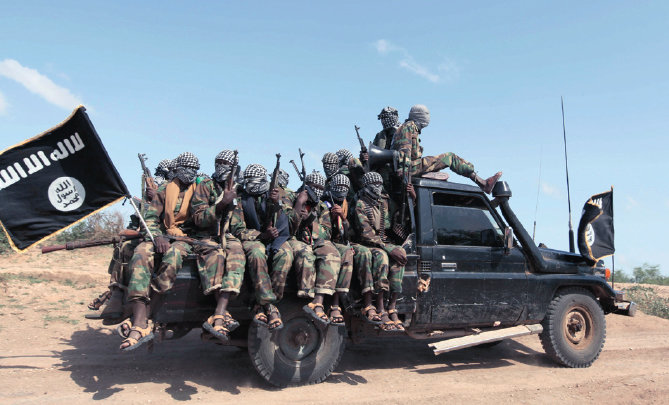In the contemporary discourse surrounding terrorism, it is imperative to dissect the underlying motivations that compel individuals to commit acts of violence. At the crux of this examination lies a fundamental question: What do terrorists genuinely desire? This inquiry extends beyond a mere analysis of ideology and delves into a broader understanding of human needs and aspirations. In exploring this complex terrain, the Bahá’í teachings offer a compelling framework that emphasizes unity, justice, and the intrinsic dignity of all humanity.
First and foremost, it is essential to explore the motivations that drive individuals toward terrorism. The motivations are often multifaceted, encompassing political, ideological, and psychological dimensions. Disenfranchisement and marginalization tend to fuel a sense of urgency and grievance, prompting individuals to seek radical solutions to perceived injustices. The Bahá’í perspective recognizes that these feelings of alienation stem from a profound socio-economic divide that manifests across various cultures and societies.
Furthermore, it is critical to consider the role of identity in the motivations of terrorists. Many individuals derive their sense of purpose and belonging from their affiliations with specific groups—be they religious, ethnic, or nationalistic. In situations where individuals feel their identity is threatened or diminished, extremist ideologies can emerge as a means of reclaiming power and purpose. Thus, acknowledging the desire for recognition is vital in understanding the psychological impetus behind violent actions.
One cannot overlook the significance of socio-political context when examining terrorism. Historically, oppression and violence beget further violence, leading to a vicious cycle of retribution. Herein lies a vital lesson from Bahá’í teachings—a belief in the principle of justice as a cornerstone for social stability. The Bahá’í Faith advocates for a just society where inequalities are addressed, and every individual can contribute to the greater good. By promoting dialogue and understanding, the Bahá’í teachings emphasize the necessity of breaking this cycle and seeking resolutions that honor all parties involved.
Moreover, the concept of radicalization often emerges as a topic of concern. Individuals can become ensnared by extremist ideologies when they perceive no viable options for change. This underscores the necessity for communities to create avenues for positive engagement, fostering resilience against the allure of violence. Bahá’í teachings advocate for education as a catalyst for empowerment and transformation. By equipping individuals with critical thinking skills and nurturing their innate capacities, societies can cultivate an environment where peaceful resolutions to conflict are possible.
Another salient aspect of understanding terrorism is the exploitation of religious sentiments. Terrorists frequently co-opt religious principles to legitimize their actions, distorting the very essence of faith. In juxtaposing this reality with Bahá’í teachings, one finds a call for the spiritual unity of mankind. The Bahá’í Faith posits that religions should be the source of concord rather than division. Emphasizing universal principles, such as compassion and empathy, the Bahá’í Faith encourages adherents to foster an understanding of others’ beliefs, thus cultivating an environment less conducive to conflict.
Examining the beliefs of those who commit acts of terrorism reveals a yearning for significance—a craving to effect change in a world they perceive as unjust. It is this desire that can be productively channeled into constructive avenues. The Bahá’í writings encapsulate this idea beautifully, urging followers to transform their innate impulses to ensure they manifest as forces for good. In this way, the Faith provides a paradigm through which individuals can find meaning without resorting to violence.
Additionally, the Bahá’í teachings stress the importance of recognizing the oneness of humanity. This principle dismantles the artificial barriers that lead to division and strife. It posits that all individuals, regardless of their background, share collective aspirations for peace, prosperity, and fulfillment. When people comprehend that their interests are intertwined, the impetus for conflict dissipates, and collaborative solutions emerge. The Bahá’í perspective thus offers a hopeful lens through which to view the complexities of human interactions and the tendencies toward violence.
In tackling the question of what terrorists truly want, it becomes evident that the path toward understanding necessitates empathy and a commitment to addressing root causes. This comprendion entails a belief in the potential for redemption and transformation. The Bahá’í teachings proffer a vision where individuals are not solely labeled as perpetrators but seen as complex human beings with needs, dreams, and a longing for meaning. As societies reflect on these teachings, they are encouraged to cultivate inclusive environments where every person can flourish and contribute to a unified humanity.
In conclusion, addressing the pernicious phenomenon of terrorism requires a nuanced understanding of its underlying motivations. The Bahá’í teachings provide invaluable insights that can shape our response to extremism, promising to shift perspectives toward one of unity and compassion. By recognizing the desires for belonging, recognition, and justice, individuals and communities can work together to dismantle the conditions that foster such violence. Ultimately, fostering an environment of dialogue, understanding, and proactive engagement is imperative in this endeavor. The teachings of the Bahá’í Faith stand as a beacon guiding humanity toward a future devoid of violence and replete with peace and harmony.
